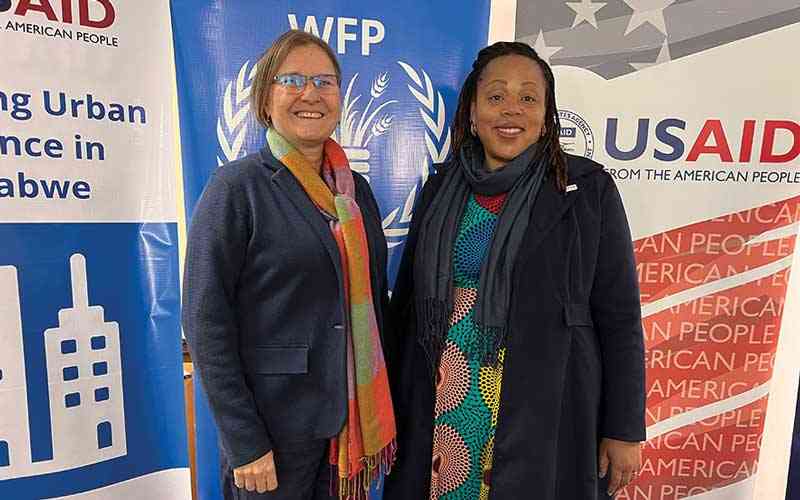
THE United States Agency for International Development (USAid) has availed US$2 million to support citizens in urban areas with emergency food aid as many sink into poverty due to the prevailing harsh economic climate.
The funding will be distributed through the United Nations World Food Programme (WFP) to build resilience among urban communities.
“The United States is renowned all over the world for its humanitarian commitment. Through this event, we announce that WFP has received a US$2 million contribution to support more than 2 000 vulnerable families in three urban areas over the next year,” WFP’s country director, Francesca Erdelmann, said recently.
Erdelmann said WFP had received US$11,5 million from USAid for emergency response to date this year.
Latest assessments estimate that approximately 1,5 million Zimbabweans living in urban areas are food insecure, despite bumper harvests having been declared last year and this year.
According to humanitarian aid reports, over 3,7 million Zimbabweans have registered for the government social food assistance programme. This is a 54% increase from December last year when only 2,4 million people queued for food handouts under the programme.
Government is directly providing for 3,2 million people, while development partners such as WFP are catering for the rest.
The factors driving food insecurity in Zimbabwe are multifaceted with the harsh economic climate being one of them.
- COP26 a washout? Don’t lose hope – here’s why
- Under fire Mnangagwa resorts to Mugabe tactics
- How will energy crunch transition impact transition to renewables?
- COP26 a washout? Don’t lose hope – here’s why
Keep Reading
“Across the country, WFP supports urban communities through sustainable resilience-building, livelihood creation and socio-economic empowerment activities. We focus on addressing the short-to mid-term needs of vulnerable urban households so that they can thrive,” Erdelmann said.
Last year, 18 000 households across 20 urban areas participated in resilience-building activities.
USAid acting mission deputy director Priscilla Sampil said indications were that the majority of the country’s citizens were sinking into poverty.
“This is our third round of USAid funding to the WFP’s Urban Resilience programme, demonstrating the US government’s commitment to tackling food insecurity and building community resilience in urban areas,” Sampil said.
“Unfortunately, due to the fragile macro-economic situation, many urban households in Zimbabwe are slipping further into poverty.
“Just as its name says, the Urban Resilience Programme will work with urban households, to help them better withstand and adapt to the current situation and future shocks and stressors.”






